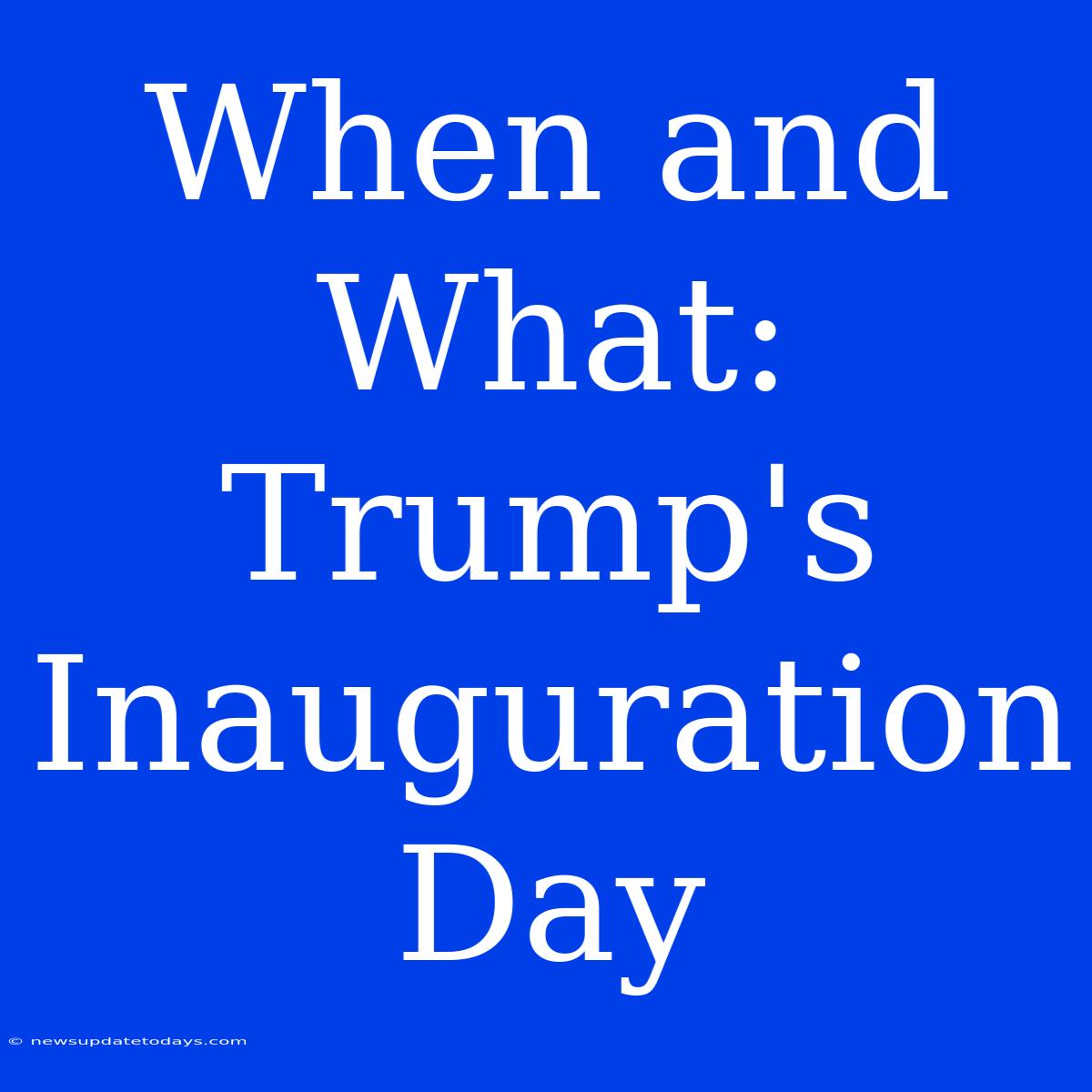When and What: Unpacking Trump's Inauguration Day
Donald Trump's inauguration as the 45th President of the United States on January 20, 2017, remains a significant event in American history, sparking intense debate and analysis even years later. This article delves into the key events of that day, exploring both the ceremony itself and the broader context surrounding it.
The Ceremony: A Day of Contrasts
The inauguration ceremony, held on the West Front of the United States Capitol, presented a stark contrast in tone and style compared to previous inaugurations. While traditional elements remained – the swearing-in, the inaugural address, and the parade – the overall atmosphere was notably different.
Key Moments:
- The Swearing-In: Chief Justice John Roberts administered the oath of office to Donald Trump, marking the official transfer of power. This moment, typically solemn and unifying, was overshadowed by the highly polarized political climate.
- Trump's Inaugural Address: The speech, characterized by its populist and nationalist themes, set the stage for Trump's presidency. Key phrases like "American carnage" and promises to "Make America Great Again" resonated deeply with his supporters but alienated many others. The address's tone and content continue to be dissected and debated.
- The Parade: The inaugural parade, featuring military units and various musical groups, showcased a blend of traditional pageantry and elements reflecting Trump's campaign imagery.
Beyond the Ceremony: Protests and Reactions
Trump's inauguration day was not solely defined by the events at the Capitol. Massive protests took place across the country, reflecting the deep divisions within American society. The Women's March, a significant demonstration advocating for women's rights and other progressive causes, attracted millions of participants globally, highlighting the widespread dissent surrounding the new presidency.
Reactions and Analysis:
- Media Coverage: The inauguration received extensive media coverage, with various outlets offering diverse perspectives on the event and its significance. The coverage itself became a point of contention, with accusations of bias and misinformation from both sides of the political spectrum.
- International Response: The inauguration elicited mixed reactions internationally. While some world leaders expressed optimism about working with the new administration, others expressed concern about Trump's policies and rhetoric.
Lasting Impact and Historical Significance
Trump's inauguration day serves as a crucial marker in American political history. It highlighted the deep societal divisions present in the United States and foreshadowed many of the defining characteristics of his presidency: a focus on nationalism, a populist appeal, and a highly confrontational political style. The day's events continue to be studied and debated, offering valuable insights into the complexities of American politics and the power of symbolism in shaping public perceptions.
Keywords: Donald Trump, Inauguration Day, January 20, 2017, Inaugural Address, Women's March, American Politics, US Presidency, Political Polarization, Nationalism, Populism.

